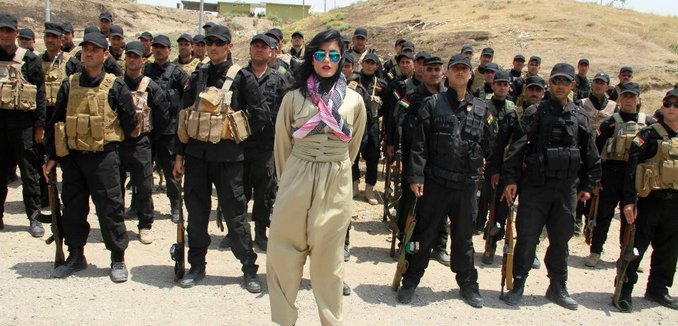After a series of victories in northern Iraq by the Islamic State of Iraq and al-Sham (ISIS), an al-Qaeda offshoot, the United States on Friday launched a limited military strike against the Islamist group. ISIS’ victories threaten thousands of Iraqi minorities, prompting President Barack Obama to take action to protect the Yazidi, a small religious sect, and the Kurds.
The New York Times reports about President Obama’s motivation to intercede:
Aides said his hand was not forced until ISIS won a series of swift and stunning victories last weekend and Wednesday night against the Kurds in the north, who have been a loyal and reliable American ally, especially compared to the Baghdad government of Prime Minister Nuri Kamal al-Maliki. ISIS threats to wipe out Yazidis and other religious minorities trapped on Mount Sinjar, they said, added to the urgency.
So far the aid offered to the beleaguered targets of ISIS has been food and water. There has also been a report of an American strike against ISIS artillery.
In his speech about the emerging crisis in Iraq, Obama pledged to “provid[e] urgent assistance to Iraqi government and Kurdish forces so they can more effectively wage the fight against ISI[S].”
Experts and opinion makers argue that support for the Kurds should be an essential part of America’s fight against ISIS.
A Washington Post editorial yesterday urged the administration to “act immediately to address the humanitarian crisis in northern Iraq and to further support Kurdish forces, which face the Islamic state along a 600-mile border. If the Iraqi airlift of supplies to the stranded Yazidis is ineffective, the United States should consider other action to save the refugees. It also should supply Kurds with the heavy weapons they have requested and, if necessary, use U.S. air power to stop the Islamic State forces from advancing further.”
Michael Knights, a fellow at the Washington Institute for Near East Policy, argued that American support for the Kurds could be crucial in the effort to turn back the recent gains of ISIS.
I have argued before that the Kurds are the key to defeating ISIS. Why? The Kurds control the only intact forces in Iraq and have a history of confronting and defeating Salafi terrorist groups in northern Iraq. Plus, the north-south road from Baghdad to ISIS’s capital in Mosul is 350 miles but Mosul is only 30 miles from the Kurdistan region. The battlefield geometry practically dictates that the Kurdish region is the ideal launchpad for a war against ISIS. …
The Kurdish peshmerga are 80 percent of the way there in terms of fighting spirit, equipment and skills. If full U.S. security cooperation — the “special sauce” of U.S. air support, logistics and coordination with the Iraqi military — were to be rapidly extended to the Kurds, they could break ISIS’s momentum and deal them a public blow between Mosul and the Syrian border. This kind of defensive action would snap the would-be ISIS caliphate in half and spark tribal uprisings against them that might drive them out of the cities and into the deserts again.
In Say it Again. Kurdish Independence Now, which appeared in the September 2013 issue of The Tower magazine, Jonathan Spyer argued for not just targeted military aid to the Kurds, but also long-term political support for their independence.
The Middle East is in the midst of enormous historic changes, and the Kurds stand to be one of the main beneficiaries. Kurdish sovereignty would mean the establishment of a strong, pro-Western state in Middle East that is likely to be characterized by pragmatism, stable governance, and a pro-Western strategic outlook. It would also possess substantial natural resources and a mobilized populace willing to defend it. A Kurdish state in northern Iraq, moreover, would likely absorb the Kurdish enclave in northeast Syria, effectively breaking up Iraq and Syria—two failed states that have been a byword for war, repression, and terrorism for most of the last fifty years.
[Photo: G2musicgroup / WikiCommons ]




